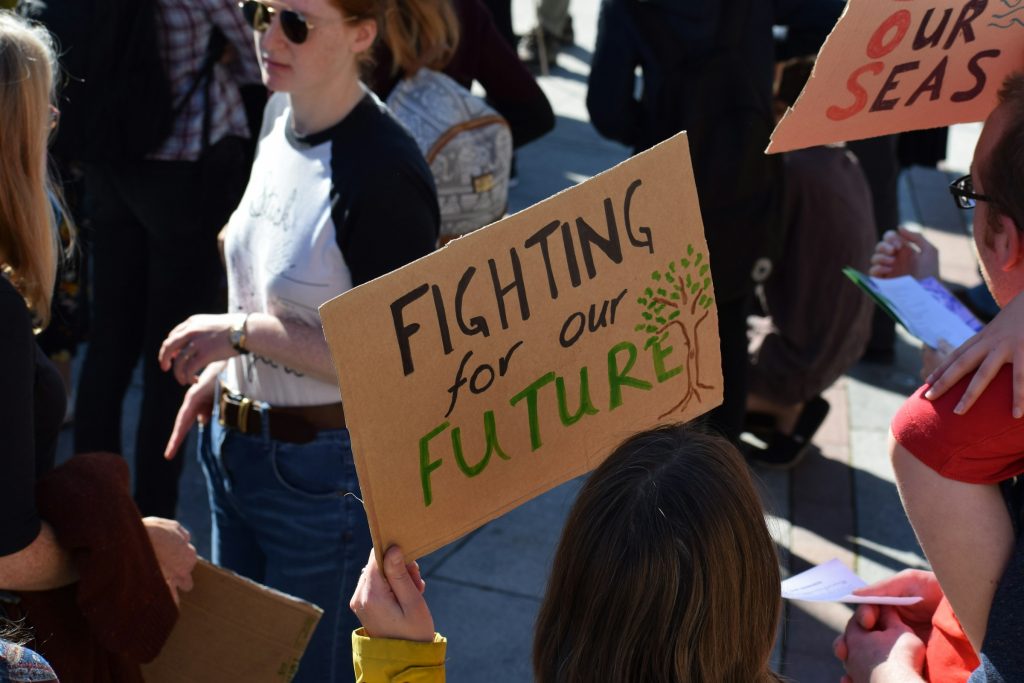With political leadership changing across the world, 2025 presents a crucial opportunity to focus on intergenerational solidarity.

Photo de Ma Ti sur Unsplash
An issue that representative democracy has failed to grip
In the UK, it’s a year to address the growing tensions between generations currently failed by representative democracy — especially in areas such as housing, education, the environment, and social care. The 10th anniversary of the Wales Well-being of Future Generations Act, the need to implement the new UN Declaration on Future Generations, and the Government’s National Decade of Renewal provide a pivotal moment to prioritise the wellbeing of current and future generations.
The urgency of this moment was underscored in 2024 with the launch of the Liaison Committee Report on Promoting National Strategy: How Select Committee Scrutiny Can Improve Strategic Thinking in Whitehall. The report highlighted a stark reality:
“Getting Parliament and government to be more strategic than they have been over the past 20 or 30 years is vital to restoring public confidence in our entire democratic system, particularly among younger generations who will inherit the consequences of what governments do now.”
We cannot underestimate how quickly intergenerational tensions can lead to fractured democratic outcomes and civic discord. In Portugal, for instance, the far-right party Chega (meaning “Enough”) surged from holding a single parliamentary seat to capturing 20% of the vote in just one election cycle.
A new intergenerational social contract
This moment needs a new intergenerational social contract, both nationally and locally to explore how to prepare for the major transitions ahead, and share the costs and benefits fairly between generations. This will facilitate action on shared concerns across generations—ranging from housing to wealth, pensions to health and mental health, taxation to climate change—issues that require bold, long-term strategic decisions. And a relatively small change – requiring national and local funding streams to take an intergenerational stance to incorporate more members of our community rather than narrowly targeting just one age group – would drive major results for example in addressing social isolation or supporting lifelong learning.
Embedding intergenerational considerations into policymaking more broadly would result in the following benefits:
- Gaining valuable insights – Engaging people of all ages and communities offers a deeper understanding of policy outcomes that impact their lives today and in the future.
- Preventing problems before they escalate – Acting early and investing in prevention will be increasingly important for both policy effectiveness and cost savings.
- Protecting and renewing democracy – Making representative democracy work better for all ages is essential to prevent disengagement, particularly among younger generations.
National-level recommendations
To support the UK’s commitment to the Decade of Renewal and a Missions-led approach to achieve transformative outcomes, we propose the following:
- Establish a Parliamentary Committee for Future Generations and integrate intergenerational assessments into legislative review – As recommended by the Liaison Committee.
- Encourage cross-departmental collaboration – Incentivising a joined-up approach across government to ensure long-term outcomes are embedded.
- Support national intergenerational dialogues – Engaging citizens and stakeholders in meaningful discussions.
- Learn from devolved administrations – Drawing inspiration from innovative practices in Wales, Scotland, and Northern Ireland.
Local-level recommendations
To empower local communities, each unitary local authority should develop an intergenerational strategy, incorporating institutional innovations and long-term planning and funding. There are examples to inspire action, including:
- Oxfordshire County Council – established Future Generations commitment and commissioner, together with public engagement, policy analysis and capability building, especially with a health focus.
- North of England NHS – Appointing Future Generations representative to integrate long-term thinking into healthcare planning.
- Fife Council – Following the passage of Councillor Julie MacDougal’s Motion on Intergenerational Working in December 2024, Fife became the first Scottish council to formally adopt such practices as policy.
A simple yet universal concept
While concepts like future generations, long-term governance, and intergenerational fairness may seem complex, at their core, they embody a simple and universally appealing idea:
We must actively consider the impact our decisions today have on people of all generations—now and in the future—because their consequences are already being felt.
This idea is rapidly gaining traction across think tanks, activists, business leaders, academics, and policymakers. The upcoming Fairness Foundation report on long-term thinking in the UK, set for publication in April, will provide further evidence to support this approach. The planned 2026 Global Intergenerational Congress convened by Generations Working Together will turbocharge this discussion. And more ideas for implementing intergenerational fairness and the other commitments of the Declaration on Future Generations can be found in the intergenerational fairness toolkit and DFG implementation Handbook by School of International Futures.
What needs to happen next?
We recommend that the UK Parliament Modernisation Committee and the newly formed Mayoral Council take forward these recommendations. Furthermore, the Government should establish a Declaration on Future Generations (DFG) Implementation Taskforce within the Cabinet Office, working jointly with the Foreign, Commonwealth & Development Office (FCDO), the Treasury and the Government Office for Science (GO-Science) to drive progress.
A strong lead from the Prime Minister and the Cabinet Office is essential to join up efforts across government departments and ensure real action is taken. 2025 must be the year where the UK government commits to all generations—both present and future. The upcoming Global Intergenerational Week 24-30 April is an opportunity to raise awareness, learn together and make some meaningful big commitments.
After all, “We do not inherit the Earth from our ancestors; we borrow it from our descendants.”
Cat Zuzarte Tully – School of International Futures
Stephen Burke – United For All Ages
Will Snell — Fairness Foundation
